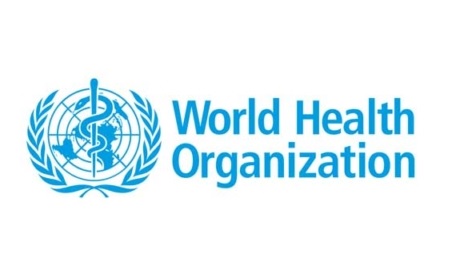Aspirin is a widely available over-the-counter medication that shows substantial effects at promoting survival and reducing risk of many types of cancer, plus reducing inflammation.
How do experts use aspirin?
Both medical groups and integrative experts provide recommendations for aspirin in treating people with cancer. Learn more about the approaches and meanings of recommendations: Integrative Oncology Programs and Expert Guidelines ›
Clinical practice guidelines
US Preventive Services Task Force (USPSTF) issued an updated assessment in 2022 removing their earlier recommendation regarding the use of aspirin: “The evidence is unclear whether aspirin use reduces the risk of colorectal cancer incidence or mortality.”1US Preventive Services Task Force, Davidson KW, Barry MJ et al. Aspirin use to prevent cardiovascular disease: US Preventive Services Task Force recommendation statement. JAMA. 2022 Apr 26;327(16):1577-1584. Related to cardiovascular disease (CVD), “the USPSTF recommends against initiating low-dose aspirin use for the primary prevention of CVD in adults 60 years or older.”2Aspirin Use to Prevent Cardiovascular Disease: Preventive Medication. US Preventive Services Task Force. April 26, 2022. Viewed June 30, 2023.
Other recommendations

World Health Organization
The World Health Organization includes aspirin (acetylsalicylic acid) in their Model List of Essential Medicines, but not specifically for cancer.
Published protocols, programs, and approaches
Aspirin is used in programs, approaches, and protocolsa package of therapies combining and preferably integrating various therapies and practices into a cohesive design for care from these integrative oncologists, drawing from both scientific research and observations from years or even decades of treating people with cancer.
Keith Block, MD
Block KI. Life over Cancer: The Block Center Program for Integrative Cancer Care. New York: Bantam Dell. 2009.
The integrative Block Program has recommendations to people who are at different places along the cancer continuum:
- Those who’ve been recently diagnosed
- Those in treatment
- Those who’ve concluded treatment and need to remain vigilant to prevent recurrence
Aspirin is used for inflammation.
Raymond Chang, MD, FACP
Chang R. Beyond the Magic Bullet: The Anti-Cancer Cocktail. New York: Square One Publishers. 2012.
This book describes a “new therapy based on the knowledge that certain off-label drugs, nutrients, and therapies are each somewhat effective against cancer.” Dr. Chang combines approaches for added benefit.
Describe the recommendation(s) or delete this sentence if none.
Low-dose (“baby”) aspirin is used to decrease risk of cardiovascular events and clots which can be caused by celecoxib and certain Chinese herbs, respectively.
Gurdev Parmar, ND, FABNO, and Tina Kaczor, ND, FABNO
Parmar G, Kaczor T. Textbook of Naturopathic Oncology: A Desktop Guide of Integrative Cancer Care. 1st edition. Medicatrix Holdings Ltd. 2020.
This book provides information on the treatment of 24 cancers, plus the most effective treatments of the most common symptoms affecting cancer patients while they undergo chemotherapy, radiotherapy, or surgery.
Other expert assessments
Moss Reports

Subscription required
“One must balance the benefit of aspirin against the well-known risk of stomach bleeding that may occur after regular use.”
Dosing
Dosage has not been standardized for use in cancer care or prevention, but recommendations are available from these studies:
- “An average daily dose of 100mg had the highest probability of reducing death, cancer death, and cancer incidence, whereas higher doses seemed superior for reducing CVD [cardiovascular disease] events, and 100mg or less daily proved better tolerated.”3Lotrionte M, Biasucci LM et al. Which aspirin dose and preparation is best for the long-term prevention of cardiovascular disease and cancer? Evidence from a systematic review and network meta-analysis. Progress in Cardiovascular Diseases. 2016 Mar-Apr;58(5):495-504.
- Lower risk of esophageal adenocarcinoma was observed only for 4.5 times or fewer per week and 6 or fewer years of aspirin use.4Xiaohua Y, Zhenjiang Y, Weidong L, Pengcheng X, Sidong C. The non-linear threshold association between aspirin use and esophageal adenocarcinoma: results of a dose-response meta-analysis. Pharmacoepidemiology and Drug Safety. 2014 Mar;23(3):278-84.
- Lower risk of stomach (gastric) cancer was observed only for 4.5 times or fewer per week, with more benefits from more years of use.5Ye X, Fu J et al. Frequency-risk and duration-risk relationships between aspirin use and gastric cancer: a systematic review and meta-analysis. PLoS One. 2013 Jul 30;8(7):e71522.
- “Long-term (>5 years), low-dose (75–325 mg per day) and regular aspirin use (2–7 times per week) can effectively reduce the risk of colorectal cancer.”6Ye X, Fu J, Yang Y, Chen S. Dose-risk and duration-risk relationships between aspirin and colorectal cancer: a meta-analysis of published cohort studies. PLoS One. 2013;8(2):e57578.
Expert commentary
Laura Pole, RN, MSN, OCNS, CancerChoices senior clinical consultant: Although a meta-analysisa statistical analysis that combines the results of two or more research studies; the results of smaller research studies addressing the same or similar questions can be analyzed as though they are one bigger, more powerful study7Huang R, Jiang L et al. Comparative efficacy of therapeutics for chronic cancer pain: a Bayesian network meta-analysis. Journal of Clinical Oncology. 2019 Jul 10;37(20):1742-1752. lists the combination of aspirin and codeine as having strong evidence of reducing chronic cancer pain, aspirin, at least in the US, is rarely used either alone or combined with an opiate for chronic, persistent cancer-related pain. In doses that relieve pain, the side effects of long-term use—increased bleeding risk and ulceration of the stomach—outweigh the benefits. Rather, common practice is to use acetaminophen (Tylenol) either alone for mild pain or in combination with opioids for higher levels of pain.
Keep reading about aspirin
Learn more
References
